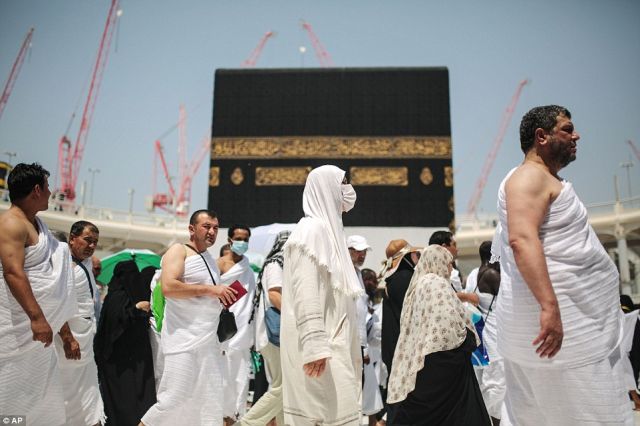
Haj 2018 likely to be costlier, but not because of subsidy abolition
New Delhi : Haj 2018 is likely to be costlier than last year but not because of the abolition of subsidy that the government announced on Tuesday.
The cost is likely to go up thanks to rise in expenses incurred in Saudi Arabia during the Haj such as accommodation, transport, food and the like. Notably, the government subsidy did not cover these expenses and was limited to the airfare.
Haj Committee of India (HCI) Chairman Mehboob Ali Kaiser told IANS that it was bargaining hard with Saudi authorities to keep the cost in check but local factors may result in the rise of Haj expenses this year.
In 2017, the HCI charged Rs 200,000 for Haj with ordinary accommodation (Azizia) and Rs 234,000 for deluxe accommodation (Green), which is closer to the Haram in Mecca.
“Over the last year, the electricity tariff in Saudi Arabia has shot up three times. Also, the petrol prices have doubled. The accommodation cost is also going up. These factors may result in a hike in the total Haj cost this year,” Kaiser said.
At this point, it is difficult to predict the final cost to each pilgrim for Haj 2018, he added.
“It will be unfair to expect the same costs for everything in Saudi Arabia after a threefold rise in electricity prices and doubling of petrol prices. Secondly, the Saudis are cussed bargainers and we have to really haggle hard with them for every riyal.
“Nevertheless, we are trying our best and bargaining hard with them to ensure that the cost does not go up drastically,” Kaiser said.
Union Minority Affairs Minister Mukhtar Abbas Naqvi on Tuesday announced the abolition of Haj subsidy from this year.
Kaiser said that the HCI “knew it was coming and were sort of mentally prepared for it”.
“In any case, the withdrawal of subsidy will not affect the airfares from major cities such as Mumbai, Delhi, Ahmedabad and Bengaluru — but fares from smaller embarkation points such as Srinagar, Gaya may go up. But people from these states may now embark from any other place from where fares are low, such as Mumbai, Delhi or Ahmedabad,” he added.
However, in the coming years, the Haj cost is expected to come down as the Indian government is already working in the direction of reviving the sea route to Jeddah.
Naqvi said that the government has already taken active steps in this direction and once it is implemented, the fares would come down drastically.
Giving the genesis of the Haj subsidy, senior Congress leader Ghulam Nabi Azad said that it started in the 1980s (when Azad was a member of HCI) when the ships which were used to ferry the Haj pilgrims started ageing.
“The government was not disposed to spend money to buy new ships due to budget constraints. So, it was decided to fly the pilgrims to Jeddah. But the airfares were four times higher than the ship’s fare. So the government decided to cover some of the cost through a subsidy,” Azad said.
The sea route was discontinued in 1995.
(Mohd Asim Khan can be contacted at mohd.a@ians.in)
—IANS

